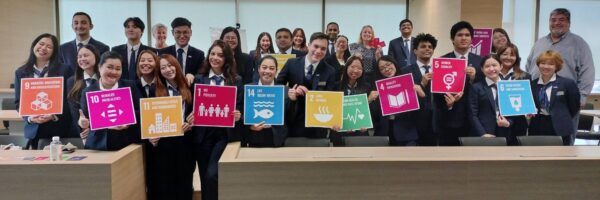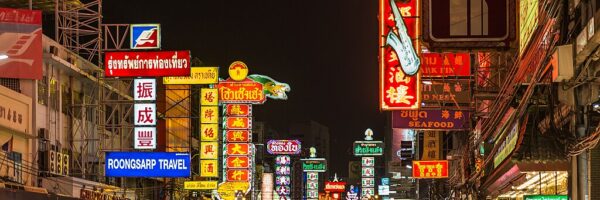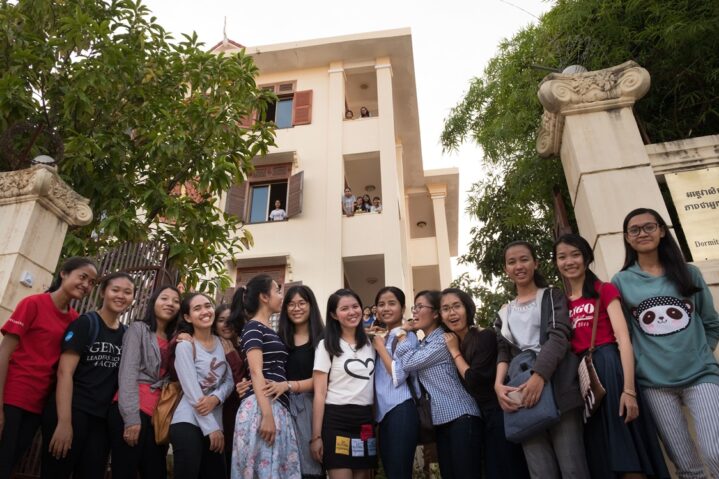
Harpswell – Supporting women’s education in Cambodia
Education is one of the cornerstones of society, but not every country is fortunate enough to have a sound system in which to teach and bring up its children. One such place is Cambodia, a nation that suffered great losses under the Khmer Rouge, which had targeted everyone with an education, even the slightest, and eliminated them from the fiber of their society. The result is an uneducated nation that finds it difficult to move forward in this modern time. It is therefore of utmost importance to assist, teach, and guide the Cambodian people so they can catch up with the rest of the world.
Fortunately, there are people who are concerned with others’ welfare and wellbeing and take action. Such are Jordan Sachs and his wife Jeannie, who decided to do something about it. It all began when Alan and Jean Lightman, an American couple who had set up a nonprofit foundation devoted to educating young Cambodian women, invited Jordan to join them for the opening of the first women’s dormitory.
History of Harpswell
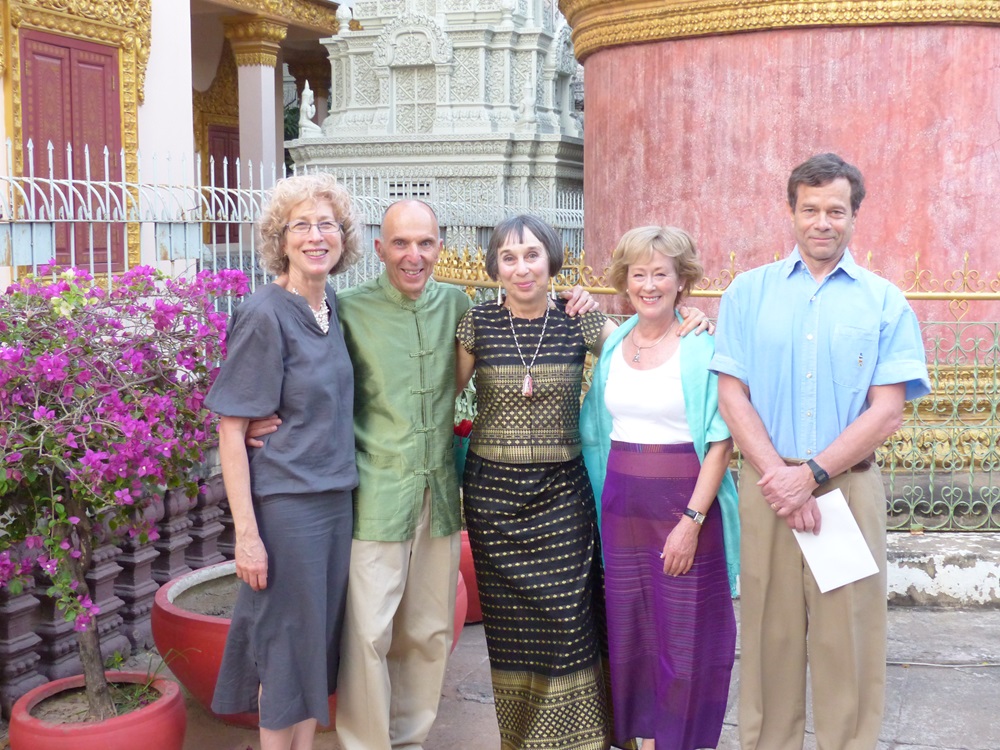
The nonprofit Harpswell was established in the early 2000s, and was named after the county of their Maine summer home. Lightman is an astrophysics professor at the renowned Massachusetts Institute of Technology (MIT) with an interest in literature, and is the only one to hold two professorships there, one in Physics and the other in Liberal Arts, and teaches part-time at both. An educator by nature, he focused on Cambodian education needs when a Christian minister in Maine, USA told him about the plight of the Cambodian people. With a relatively small endowment he began his philanthropic work in Cambodia, a sum of money that went far there at the time. “It was like a shoestring project,” Jordan says.
The Lightmans’ first project was focused on the Cham village of Tramung Chun, 40km away from Phnom Penh, reached by a dirt road. The Cham are the Muslim minority of Cambodia, and the village is extremely poor. The Lightmans built the only school in the village where children in K-6 grades are taught. They also founded a sewing school and provided all the supplies including sewing machines. The Red Dirt Road company was then opened, managed by Marie, an American woman who has been helping to market the silk products that are made there. Selling these items to outlets in the US and Europe has become a major source of income for the village.
Jordan Sachs joins Board of Advisers
In the year 2006, Jordan Sachs who was a donor, was invited to join the foundation and its Board of Advisers. The positions on the Board of Trustees were left to younger people. The aim of this project is to help Cambodia move forward, and education is a key component. The women who are from various universities are accepted into the programme and are well provided for – their tuition, room and board, an in-house Harpswell curriculum which includes critical thinking skills and leadership skills, English language as well as means of transportation, such as bicycles and motor scooters, depending on the distance each has to travel to her university from her dormitory.
Talking about dorms. There were no places for female students to reside in Phnom Penh while attending a university, one of several higher learning institutes that are scattered around the city. Male students were able to find a place to stay with the monks at the Buddhist temples, the women however, had no place to live while attending university. This dilemma caught Alan Lightman’s attention whereupon he and his wife decided to build dormitories for the female university students in Phnom Penh. It was a first in the city and the country at large.
Initially, one such building was constructed in 2006, providing housing for over forty students, followed by a second dorm in 2010. These dormitories are located at both extremes of the various universities’ buildings, one housing students who are studying STEM subjects such as science and mathematics while the other provides housing for Liberal Arts students. As of last year (2022), only one other dormitory is provided by Cambodian universities. Some mind-boggling facts: 62% of the Harpswell graduated students have received scholarship for further studies or have spent time abroad. 78% of the university graduates were at the top of their class at their continued education at the graduate level and secured good working positions.
Accepts 12% of applicants
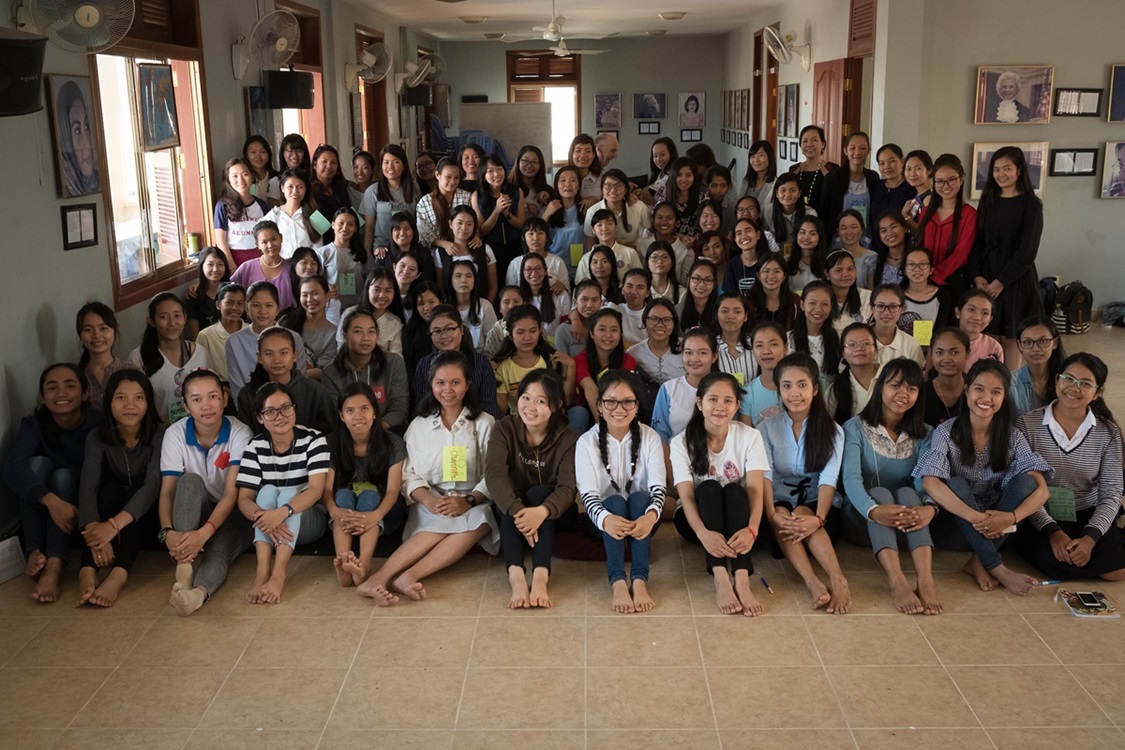
The programme that has many applicants can accept only 12% of them, the applicants having gone through a highly competitive process. The nominated students had been asked by their high school to submit an essay on what they intend to do with their education, looking for them to return in kind to their own country, rather than seek self-advancement while overseas (marriage or seek employment there).
Harpswell awards 2 or 3 annual scholarships to exceptional graduates to pursue a further degree within Cambodia. 4 out of 5 Harpswell students volunteer to mentor new students, trying to give them a sense of community which they had lost when leaving home. Scholarships from foreign universities often include all amenities, sometimes even an air ticket to return home.
- Only 18% of all Cambodians graduated from high school.
- 34% of Cambodians have never been to school.
An anecdote: A woman supported by Harpswell, whose father makes $1.50 a day got a full scholarship to Stanford University in the US to study International Relations. Upon graduation, her professor invited her to be a research assistant for a book she was writing. This outstanding graduate is still there.
Harpswell ASEAN Women’s Leadership Summit
The foundation also conducts an annual Harpswell ASEAN Women’s Leadership Summit. This annual summit brings 22 young women aged 22-30, two from each of the ten countries of the Association of SE Asian Nations (ASEAN) as well as Nepal, to Malaysia for a two week immersion in leadership development and professional networking. When in SE Asia, Jeannie and Jordan Sachs use Bangkok as their base, and from where they travel to Cambodia to check on their worthy project. There they meet with other foundation board members to evaluate and study the progress of their work, and to see what is needed further.
Looking to the future, Jordan says that it looks very positive. The basis for the outlook is the general success of the graduates who had flourished under this generous scheme.
by Ruth Gerson


